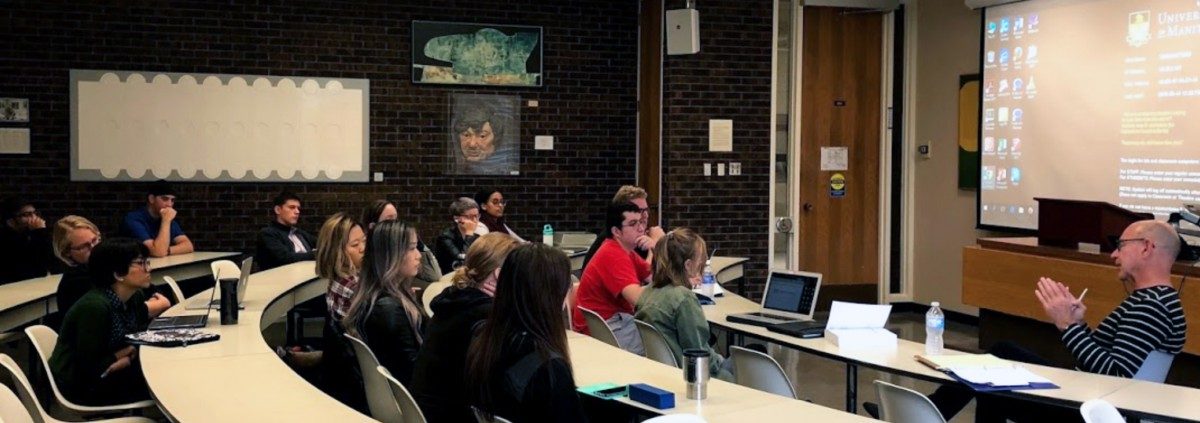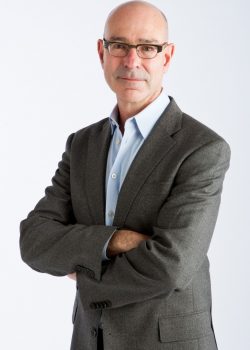
Distinguished Visitor Hathaway shares harsh reality of refugees with Law students
“Sticking with the status quo is not an option.” Professor James Hathaway gave this critique of the global refugee system alongside a series of shocking statistics: 60 percent of the global refugee population live within 10 countries; the rich countries of the world spend more money to resettle just 10 percent of the global refugee population than the United Nations High Commissioner for Refugees (UNHCR) spends on the remaining 90 percent; and in some cases refugees wait 20 years (or more) for resettlement in a safe country. Clearly, something needs to change. Professor Hathaway’s thought-provoking and engaging lecture on September 13—part of the Distinguished Visitors (DV) Lecture Series at Robson Hall—sought to offer some suggestions as to what these changes could be.

Dr. James Hathaway
Professor Hathaway is the Sarah A. Degan Professor of Law at the Faculty of Law, University of Michigan and is a leading authority of international refugee law whose work is regularly cited by the most senior courts in the world. His DV lecture strongly complements the research interests within the faculty, epitomized in the Migration Law Research Cluster, a group of faculty at Robson Hall with a focus on issues of migration. The lecture he gave at Robson Hall entitled, “The False Panacea of ‘Thin’ Protection: Why We Need a Bold Plan to Save Refugee Protection,” was delivered to a packed room of students, faculty, and community members. He specifically examined the Global Compact on Refugees currently under discussion at the United Nations. Professor Hathaway suggested that the proposed changes to the global refugee system under the Global Compact were a thin version of reform, not worth the trouble of enacting. Rather, he argued for a more robust reform which could be achieved through enacting a global refugee determination system (among other reforms). Such a system could be built to better serve refugees, the global south, and the global north.
The following day, on September 14, Professor Hathaway continued the discussion with a Q&A with students, hosted by CARL Robson Hall, a student chapter of the Canadian Association of Refugee Lawyers. Conversation flowed back and forth as students brought forward questions relating to both the Global Compact and refugee law more generally. Professor Hathaway not only challenged students to consider how each person could work to push for positive changes to the global refugee system, but also encouraged students to consider a career in refugee law as a way in which to make a huge, practical difference in the lives of many people.
For us, Professor Hathaway’s lecture opened up new ways of thinking about refugee law and inspired us to be advocates for change, even in the face of large, seemingly impermeable institutions.






